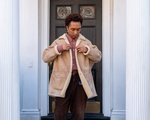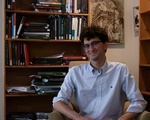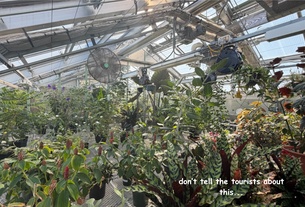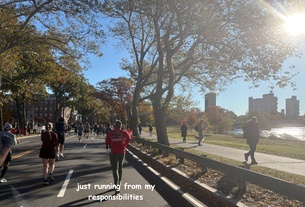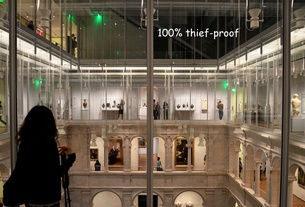Contributing writer
Jem K. Williams
Latest Content
Wedding Bells Class of 2025
Hear from eight couples in the Class of 2025 who are married or engaged to be married soon.
Best Dressed: Primo Lagaso-Goldberg
Last year, Primo says, their style was more edgy. They used to wear eyeliner every day, and their wardrobe had (well, technically, still has) an abundance of black clothing. Nowadays, you might not see them sporting black eyeliner everyday, but they always stay true to what they “feel good wearing, no matter what aesthetic that borrows from.”
Fifteen Questions: Theda Skocpol on The Election, The Ivory Tower, and The New England Patriots
The sociologist sat down with FM to discuss U.S. authoritarianism, campus protest, and her favorite football team.
How Cambridge Is Reimagining Reparations
The radical ideas behind Cambridge’s American Freedmen Commission Ordinance have the potential to reshape reparations and racial justice initiatives around the country.
Advice to Josh: How to Connect to Crimson Print
Back to school means back to the perennial problem of trying to figure out Crimson Print. Back to frantically swiping your card at a printer minutes before class, to no avail. Back to trying to figure out which mysteriously named printer on the list of many mysteriously named printers you’re supposed to choose. So we’re here to give Josh some advice: How do you connect to Crimson Print?
Fifteen Questions: Spencer Weinreich on Solitary Confinement, Religious Violence, and Quizbowl Grooming
Junior Fellow Spencer Weinreich sat down with FM to discuss the history of solitary confinement, the meaning of his tattoos, and being a “textual omnivore.”
The Academic Policing of Academics on Policing
In 2022, professors Christopher Lewis and Adaner Usmani argued that to reduce violent crime, the U.S. needs to drastically shorten its prison sentences — and increase its police force by half a million officers. Their ideas soon become a flashpoint of online discourse.
Do We Have the Right To Read?
“Do we, as a society, have an ethical obligation to create safe spaces and boundaries for particular groups of people?” asks Jocelyn Kennedy, one of the curators of the Harvard Law School library exhibit, “Challenging Our Right to Read.”
‘Ideological Authors’: Harvard’s Hidden Ties to Dirty Wars in Latin America
In the 1960s and 70s, U.S. Cold War involvement in Latin America and the violent regimes it supported were hardly discussed at Harvard. Yet these two worlds — political upheaval in Latin America and the rarefied academic spaces of the University — were far less separate than one might think.
Good Grief
Some people honor their deceased loved ones with beautiful poetry, speeches of somber remembrance, or quiet moments of reflection. I honored my grandmother with a three minute stand up set.
Advice to Josh: When Does Winter End?
As the weather fluctuates between the 30s and high 50s, and as the weeks hurtle by, it seems like spring should be coming. The air is slowly getting warmer, on average, and there are some buds starting to burst forth on bare branches. Still, Cambridge seems dreary and gray, and the midterm slump certainly isn't helping the sense of endless winter. So we're here to give Josh advice on knowing when exactly winter ends.
The Datamatch Heard Around The World
I don’t think you understand just how much I live for the moment that sweet, sweet, incredibly niche 12-question Datamatch survey drops. I can feel it in my brittle bones: This is the year I find my soulmate.
Burning Bridges: How the Charles River Changed Economic Law
The Court’s ruling set a precedent that still has implications for economic progress and market competition today. The law still struggles with the question of what it means to value technological progress over the livelihood of one company.
Fifteen Questions: Jeannie Suk Gersen on Free Speech, Fast Fashion, and Getting Over Yourself
The Harvard Law School professor and New Yorker writer Jeannie Suk Gersen sat down with Fifteen Minutes to discuss her exploration of various aspects of the law. "For me, I can’t imagine in my career not having that sense of spontaneity and unpredictability about what it is I’m going to get super interested in next," she says.
The Life of the Party: Madison Pankey
Find her at Grendel’s on Wednesday nights, or “Grendsdays” as she enthusiastically refers to them, on Thursday nights at The Burren, an Irish pub in Somerville, and in the occasional “big functions” that pop up around campus over the weekend. But most importantly, she finds it in all the nights spent with her friends.



